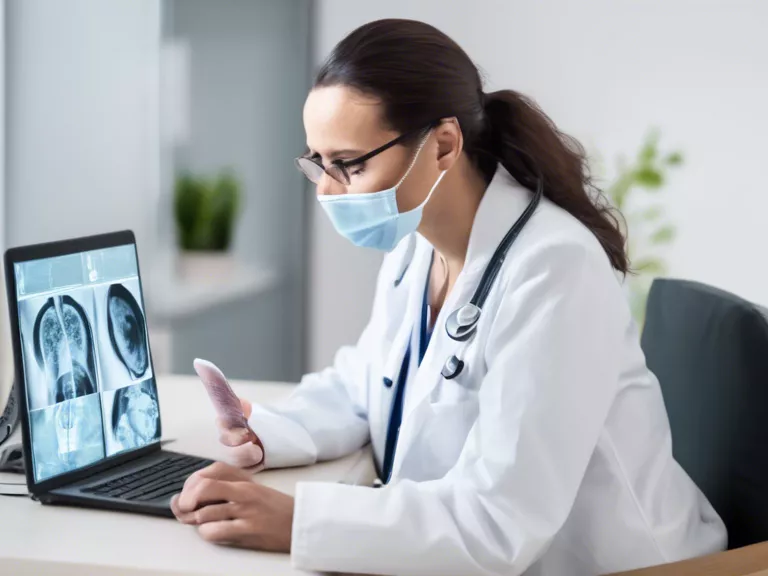
Introduction
In today's fast-paced world, advancements in technology are revolutionizing every aspect of our lives, including healthcare. The intersection of healthcare and technology, known as health tech, is reshaping the way we approach medical treatment and patient care. One of the most exciting areas within health tech is the exploration of tomorrow's medicine, where cutting-edge innovations are pushing the boundaries of what is possible in the field of healthcare.
Telemedicine and Remote Monitoring
Telemedicine, also known as telehealth, is a rapidly growing field that allows patients to receive medical care remotely through the use of telecommunications technology. This can include video consultations with healthcare providers, remote monitoring of vital signs and symptoms, and even virtual reality-based therapies. Telemedicine offers increased accessibility to healthcare services, especially for patients in rural or underserved areas. Moreover, remote monitoring devices enable continuous tracking of a patient's health metrics, providing valuable data for personalized treatment plans.
Artificial Intelligence and Machine Learning
Artificial intelligence (AI) and machine learning are playing a significant role in the advancement of tomorrow's medicine. These technologies have the potential to analyze vast amounts of medical data quickly and accurately, leading to improved diagnosis, personalized treatment recommendations, and even the development of new drugs. AI-powered tools can also help healthcare providers streamline administrative tasks, optimize workflows, and enhance patient outcomes through predictive analytics.
Wearable Health Tech Devices
Wearable health tech devices, such as fitness trackers, smartwatches, and medical-grade wearables, are becoming increasingly popular for monitoring various health metrics in real-time. These devices can track heart rate, activity levels, sleep patterns, and even detect abnormal health events like irregular heart rhythms. By providing continuous data on a person's health status, wearable devices empower individuals to take control of their well-being and make informed decisions about their lifestyle and healthcare choices.
Precision Medicine and Genomics
Precision medicine is a personalized approach to healthcare that takes into account an individual's genetic makeup, lifestyle, and environmental factors to tailor medical treatments to their specific needs. Genomics, the study of an individual's genetic information, plays a crucial role in precision medicine by identifying genetic variations that may influence a person's risk of developing certain diseases or how they respond to treatment. By leveraging genomics data, healthcare providers can deliver more targeted and effective therapies, leading to better outcomes for patients.
Virtual Reality and Augmented Reality in Healthcare
Virtual reality (VR) and augmented reality (AR) are immersive technologies that are being increasingly used in healthcare for various applications, such as surgical training, patient rehabilitation, and mental health therapy. VR simulations can provide realistic training scenarios for medical professionals, allowing them to practice complex procedures in a safe and controlled environment. AR overlays digital information onto the real world, offering surgeons real-time guidance during surgeries. These technologies have the potential to improve patient care, enhance medical education, and transform the way healthcare services are delivered.
Conclusion
Tomorrow's medicine is being shaped by the rapid evolution of health tech, with innovations in telemedicine, AI, wearable devices, precision medicine, and immersive technologies paving the way for a more personalized, efficient, and accessible healthcare system. As we continue to explore the frontiers of health tech, the possibilities for improving patient outcomes, reducing healthcare costs, and enhancing overall well-being are endless. Embracing these advancements in tomorrow's medicine will undoubtedly lead to a healthier and more connected future for all.
Glass of Win
Smile to Africa Adventure
Monika Brodka
USS Oriskany
Literati2
Penny Hardaway
Designed in Finland
Refiza
Dan Rodimer
Local Savage
ATW Traveler
Marcel Theroux
Kemble Gallery
Cronk's Oakridge
El Horizontal
Em Cada Pagina
Iroko Designs
La Fonda Mexican Restaurants
Layton Bio
Nanjing Expat
Richard YT
Righting Food
Shkodra Daily
Merabsp
pfoto rzd
Esculturasy Monumentos
Warren Indiana
Jintara Fan Club
fted cruz
Khamag Mongol
Military Art Company
beavtrav
Belum Lama
Blue Rooster Food Company
DJ Vibe
eugene the brand
hennypalooza.com
hillsideornamentals.com
Komik Gratis Online
matsunoyanotsuma.com
mix4max.com
sharingourfoodadventures.com
thebestbedlinenintheworld.com
thegrayandorange.com
toronto-restaurants.com
yamato-movie.com
Scoops Ice Cream Truck
Uncover Studios
Fc Lupopo
Toci Lamart



